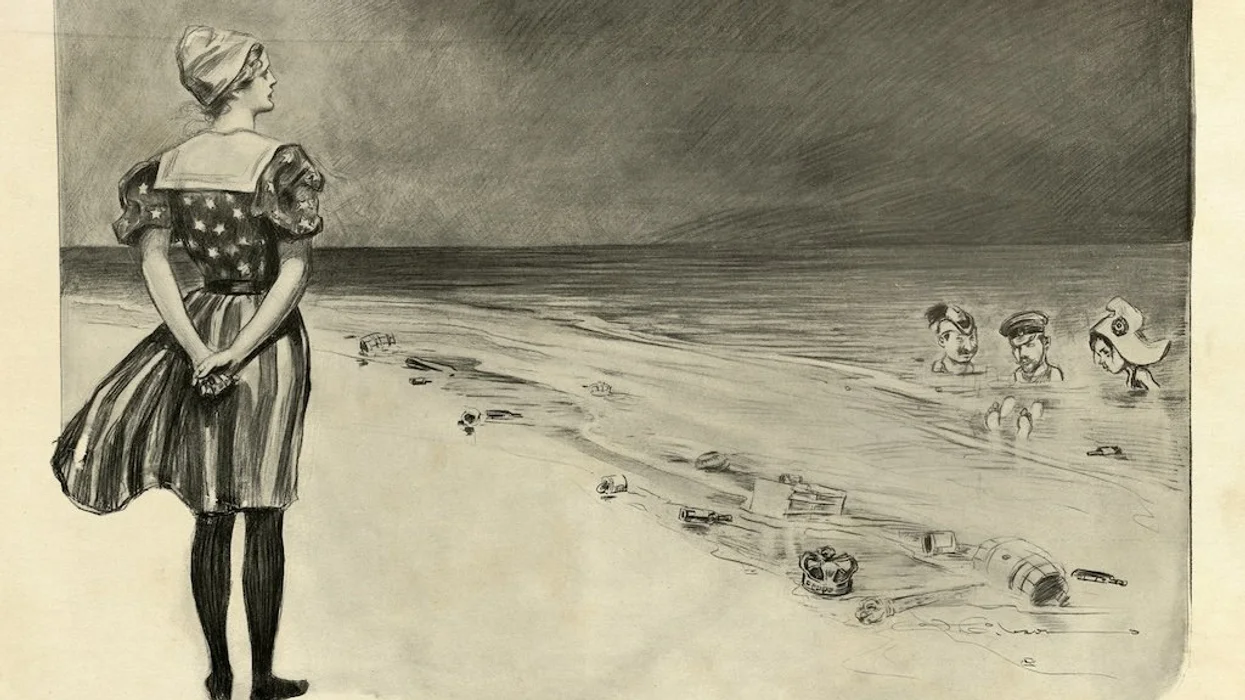
© 2025 Blaze Media LLC. All rights reserved.
If a state has a law defining marriage as between a man and woman — as has been the case since the dawn of civilization — apparently it is discriminatory and in violation of the 14th Amendment. Yet, a state CAN pass a law blatantly discriminating against whites in order to admit lower performing minorities in pursuit of diversity. That is the outcome of today’s 4-3 decision (Justice Kagan recused herself) in Fisher v. University of Texas at Austin, authored by Justice Anthony Kennedy, the same author of the gay marriage decision.
We live in a society where the 14th Amendment has been flipped on its head to violate natural law and mandate even on private individuals and employees accommodation for gay marriage and transgenderism, ideals that never existed when the Constitution was written or the 14th Amendment was adopted. Anything short of that is deemed as discriminatory in the eyes of the legal profession. The most basic common sense policies are deemed in violation of the Equal Protection Clause if they don’t favor a particular class of individuals that are in vogue with the legal profession. Yet, when it came time to call a strike on a true case of state-sanctioned racial discrimination, the same justices had no problem ignoring the 14th Amendment.
The case deals with an admissions policy at the University of Texas (UT) system’s flagship school in Austin. From 1997 to 2004, the University attempted to boost its diversity statistics through a quantitative “Top Ten Percent” system, which meant that every student in Texas in the top ten percent of their graduating high school class was granted automatic admission. This meant that even students at underperforming schools would be admitted, even if they wouldn’t have made the cut previously, so long as they did better than 90 percent of their own graduating class. They were admitted even if they performed below those in the lower tier of better performing schools. Abigail Fisher, a white woman who was denied admission to the school even though she would have met the qualifications under the true color-blind fair system, sued the university for violating the Equal Protection Clause of the 14th Amendment.
After being sent back from the Supreme Court to the lower courts in 2013 to analyze the law under a standard of strict scrutiny, the 5th Circuit Court of Appeals upheld UT’s policy. Today, Justices Kennedy, Sotomayor, Ginsburg and Breyer affirmed the 5th Circuit. Thus, even with Scalia on the Court, a 4-4 split would have resulted in a win for the Left, but it would not have created a precedent (to the extent one believes courts have such power over social issues) emboldening state race-conscious affirmative action policies. Alas, this is the first major case where Scalia’s absence is felt.
Writing for the dissenting members, which also included Chief Justice Roberts and Justice Clarence Thomas, Justice Alito cut through the clutter:
What is at stake is whether university administrators may justify systematic racial discrimination simply by asserting that such discrimination is necessary to achieve “the educational benefits of diversity,” without explaining — much less proving — why the discrimination is needed or how the discriminatory plan is well crafted to serve its objectives. Even though UT has never provided any coherent explanation for its asserted need to discriminate on the basis of race, and even though UT’s position relies on a series of unsupported and noxious racial assumptions, the majority concludes that UT has met its heavy burden. This conclusion is remarkable—and remarkably wrong.
And as always, Justice Thomas sums up the originalist truth in one paragraph in a separate dissent:
I write separately to reaffirm that “a State’s use of race in higher education admissions decisions is categorically prohibited by the Equal Protection Clause.” Fisher v. University of Tex. at Austin, 570 U. S. ___, ___ (2013) (THOMAS, J., concurring) (slip op., at 1). “The Constitution abhors classifications based on race because every time the government places citizens on racial registers and makes race relevant to the provision of burdens or benefits, it demeans us all.” Id., at ___ (slip op., at 2) (internal quotation marks omitted). That constitutional imperative does not change in the face of a “faddish theor[y]” that racial discrimination may produce “educational benefits.” Id., at ___, ___ (slip op., at 5, 13). The Court was wrong to hold otherwise in Grutter v. Bollinger, 539 U. S. 306, 343 (2003). I would overrule Grutter and reverse the Fifth Circuit’s judgment.
The Fourteenth Amendment, which was designed to grant existing liberties and property rights to freed slaves, and in the words of its drafters established “no new right” and declared no new principle,[1] has been used as a garbage can to trash the Constitution by creating super rights and privileges for favored classes under the guise of equality. Yet, when a state actually flagrantly violates the true ideals of equality based on race, the court has no problem upholding it.
Raise your hand if you believe these four liberal justices would have upheld a state university’s admission scheme to collegiate basketball if they allowed lower performing students in high school basketball programs form predominantly white schools to take slots away from higher-performing black students in predominantly African American schools? This is all outcomes-based jurisprudence.
As I warn in my upcoming book, the courts have contorted fundamental rights in the most grotesque ways imaginable. What’s in the Constitution is taken out of it and what’s absent is enshrined as a fundamental liberty interest. With each decision, they create a precedent from which to build further deviations from the Constitution. If we fail to strip the courts of their power as the sole and final arbiter of all social and political questions, this precedent will metastasize to encourage discrimination in all ways imaginable, so long as the “right” people benefit from the policy.
Want to keep up with what's going on in Washington without the liberal media slant, establishment spin, and politician-ese?
Sign up to get CRTV’s Capitol Hill Brief in your inbox every evening! It’s free!
[1] James F. Wilson, March 1, 1866. Cong. Globe, 39th Cong., 2d Sess. 39 (1866) 1117. Wilson was Chairman of the House Judiciary Committee who oversaw the drafting of the Civil Rights Act of 1866 and the 14th Amendment.
Want to leave a tip?
We answer to you. Help keep our content free of advertisers and big tech censorship by leaving a tip today.
Want to join the conversation?
Already a subscriber?
Blaze Podcast Host
Daniel Horowitz is the host of “Conservative Review with Daniel Horowitz” and a senior editor for Blaze News.
RMConservative
Daniel Horowitz
Blaze Podcast Host
Daniel Horowitz is the host of “Conservative Review with Daniel Horowitz” and a senior editor for Blaze News.
@RMConservative →more stories
Sign up for the Blaze newsletter
By signing up, you agree to our Privacy Policy and Terms of Use, and agree to receive content that may sometimes include advertisements. You may opt out at any time.
© 2025 Blaze Media LLC. All rights reserved.
Get the stories that matter most delivered directly to your inbox.
By signing up, you agree to our Privacy Policy and Terms of Use, and agree to receive content that may sometimes include advertisements. You may opt out at any time.



